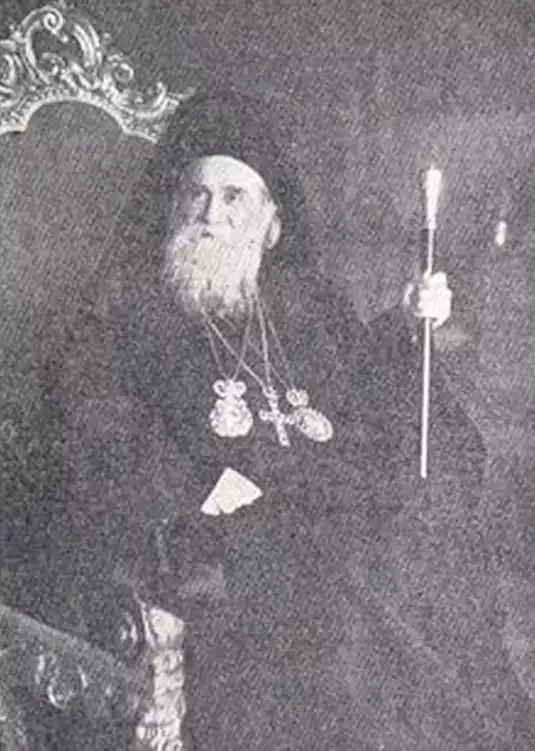
Traversing the Path from Humble Beginnings to Spiritual Eminence
Born in 1871 in the village of Zeitinli, Adramyttio, the future Ecumenical Patriarch Benjamin (Veniamin Psomas or Kyriakou) embarked on his spiritual journey at a young age. His early education in his native land and Kydonia laid the foundation for his distinguished ecclesiastical career. Ordained a deacon in 1888 by Metropolitan Agathangelos of Ephesus, he graduated from the Theological School of Chalki in 1896. His rise within the church was steady and marked by significant appointments, such as Tertiary of the Patriarchal Deacons in 1899, Deputy in 1903, and Grand Archdeacon in 1905, ordained by Ecumenical Patriarch Joachim III.
Benjamin’s journey to patriarchal leadership was not without its challenges. In 1912, he became the Metropolitan of Rhodes. During this period, misunderstandings arose over his relations with the Italian administration, leading to false accusations and his subsequent transfer to the Diocese of Silyvria in 1913. His resilience in the face of adversity and dedication to his faith led to further appointments as Metropolitan of Philippopolis, Nicaea, and Heraklion. His election as the Ecumenical Patriarch in 1936 marked a turning point, ushering in a period of stabilization for the Ecumenical Patriarchate during a tumultuous historical epoch.
Patriarch Benjamin’s tenure coincided with significant events such as the declaration of the Church of Albania as autocephalous in 1937, the return of the Carpatho-Russian Unites of America to Orthodoxy, and the resolution of the Bulgarian schism in 1945. His leadership also witnessed the tragic fire of 1941 at the Patriarchal House in Fanari, which resulted in the loss of invaluable historical artifacts. Despite these challenges, his patriarchate is remembered as a period of stabilizing influence and success.
Patriarch Benjamin’s contributions extended beyond ecclesiastical leadership. He was an advocate for education, as evidenced by his role as a teacher at the Joachimio Girls’ School and his honorary doctorates from the Universities of Athens and Thessaloniki. His life, marked by dedication, resilience, and spiritual leadership, ended on February 17, 1946, in Istanbul. His legacy continues to inspire, symbolizing the enduring strength and adaptability of the Ecumenical Patriarchate in times of change and challenge.
References
Ecumenical Patriarchate, Accessed January 20, 2024.
Mark Markou’s Historical Archive, Accessed January 20, 2024.
